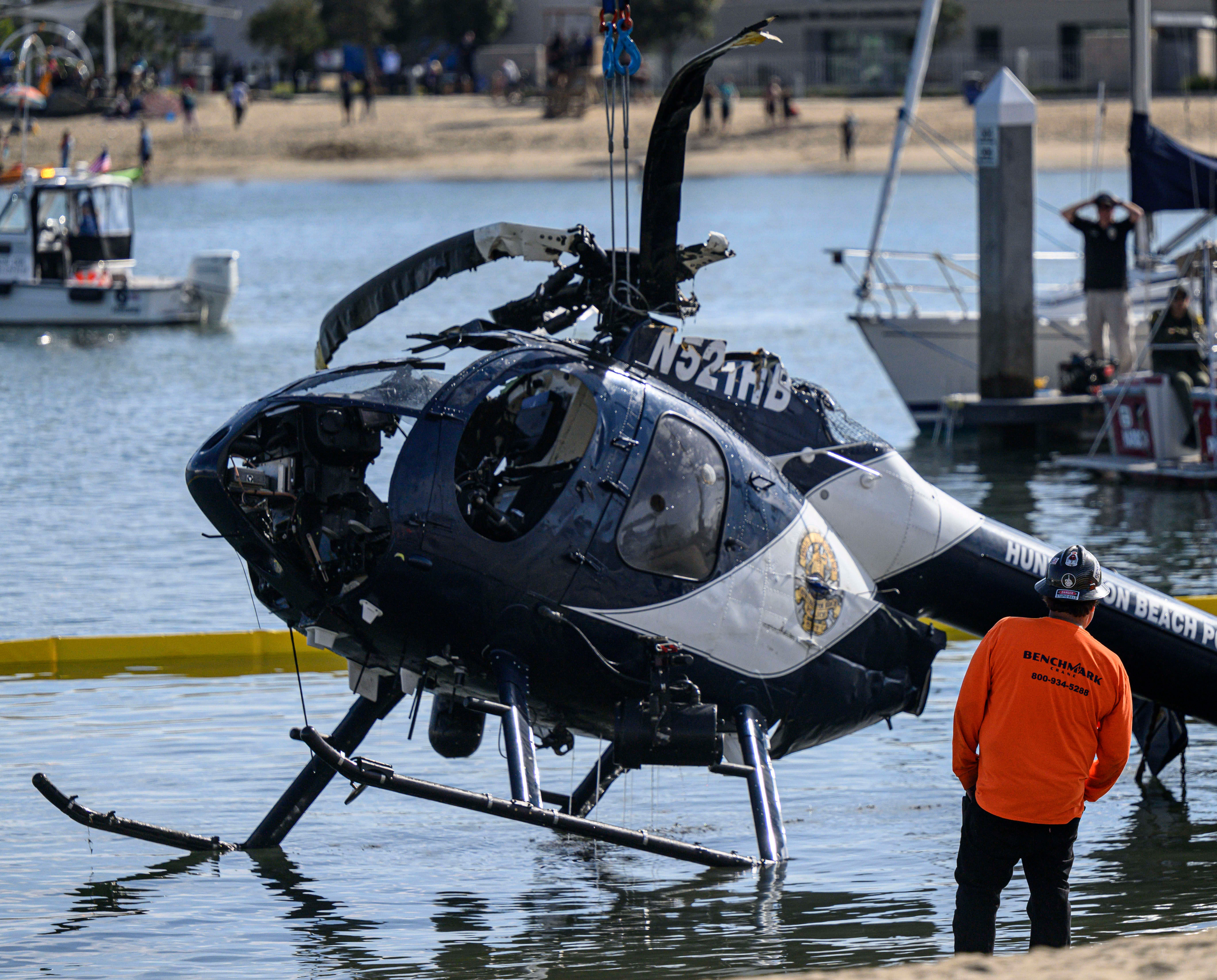Report: Pilot fought to save helicopter before deadly crash
A preliminary report by federal investigators says the pilot of a Huntington Beach police helicopter desperately tried to keep flying before crashing into the ocean last month, killing another officer

Your support helps us to tell the story
From reproductive rights to climate change to Big Tech, The Independent is on the ground when the story is developing. Whether it's investigating the financials of Elon Musk's pro-Trump PAC or producing our latest documentary, 'The A Word', which shines a light on the American women fighting for reproductive rights, we know how important it is to parse out the facts from the messaging.
At such a critical moment in US history, we need reporters on the ground. Your donation allows us to keep sending journalists to speak to both sides of the story.
The Independent is trusted by Americans across the entire political spectrum. And unlike many other quality news outlets, we choose not to lock Americans out of our reporting and analysis with paywalls. We believe quality journalism should be available to everyone, paid for by those who can afford it.
Your support makes all the difference.The pilot of a police helicopter desperately tried to keep flying before crashing into the ocean off Southern California last month, killing another officer, investigators said in a preliminary report Wednesday.
Two Huntington Beach officers were responding to a report of a group fighting in the neighboring city of Newport Beach on the night of Feb. 19 when the aircraft crashed in a narrow strip of water in Newport Bay between Lido Isle and the Balboa Peninsula. Witnesses said boaters rushed to pull the officers out of the helicopter, which landed upside down in shallow water.
The pilot was injured and 44-year-old Nicholas Vella, a 14-year Police Department veteran, died in the crash.
A preliminary report issued by the National Transportation Safety Board said the helicopter was orbiting about 500 feet above the scene and the pilot had slowed to keep a camera aimed on it when the aircraft suddenly “yawed aggressively to the right," meaning its nose veered in that direction.
The pilot tried to correct and stop the rotation but instead the helicopter began to make a spinning descent, the report said.
According to the report, Vella, who was the tactical flight officer, radioed to police: “We’re having some mechanical issues right now,” and then said: “We’re going down, we’re going down.”
Although helicopter blades can keep spinning from air flow with reduced or without engine power — a process known as autorotation that is taught as an emergency maneuver — the pilot told investigators that he wanted to keep the engine running because he was over a populated area, the report said.
“Because it was dark, he had no horizon or accurate external reference, but he could see the lights of houses approaching, and sensed impact was imminent," the report said.
The pilot reduced airspeed and then the helicopter hit the water on the right side where Vella was sitting.
“The pilot recalled a sudden smash and saw water and glass coming toward him as the canopy shattered. He felt the rotor blades hitting the water, everything then stopped, and within a few seconds he was submerged," the report said.
The pilot used a rescue air bottle to breathe and managed to get out of the helicopter before he was rescued.
The cause of the crash will be determined at the end of the NTSB’s investigation, which could take 12 to 18 months, the agency said.